To provide legal services for real cases, Peking University students help you in class
Date:2020-11-01
Editor’ note:
Buy fake goods from supermarket, but don't know how to protect rights? Start a business with a passion, but may be not sure whether certain situations are legal or not? Family encountered a legal dispute, want to get help through legal consultation?
In Peking University, there is such a class to protect your daily study and life. This course is the “legal clinic” of Peking University Law School (PKULS).
“Legal clinic” originated from a foreign law teaching mode, which describes a kind of clinical legal education. Some may wonder why the concept of “clinic” in medical field could be introduced into the classroom of law?
Like the teaching method of medical school, law education also needs to combine professional learning with legal practice, to introduce the real legal business into classroom, and to let students independently handle a case or engage in other legal practice work under the guidance of teachers. However, different from professional law firms, the value of “law clinic” focuses more on the training of legal thinking and practical skills, as well as the cultivation of professional consciousness, professional ideal and professional ethics on the basis of solving social problems.
Originated from practice, into practice and apply professional quality and skills, such is the highlight of the course.

A warm hearted college student was false charged, and the law clinic helped him win the lawsuit
Many years ago, a student of a university in Beijing was riding on the bicycle lane when a young man riding an electric motorcycle suddenly appeared behind him. In the process of overtaking, the young man collided with the student. Fortunately, the students dodged in time and did not get hurt. However, the young people bumped into the roadside guardrail, damaged the electric bicycle and get injured. Seeing that the young man got injured, the student helped him call an ambulance and take him to the hospital. However, when the family of the young people arrived at the hospital, they insisted that it was the student’s responsibility to bear the vehicle loss and medical expenses. Finally, the young people took the student to court.
In order to help the college student, students from the “law clinic” of PKULS represented the case. There were no witnesses at the scene of the accident, and both sides had their own saying on the facts. Moreover, similar cases often took the accident liability certificate issued by the traffic police as the important evidence, but the accident liability confirmation in this case was very unfavorable to the college students. The case was in the dilemma of proof.
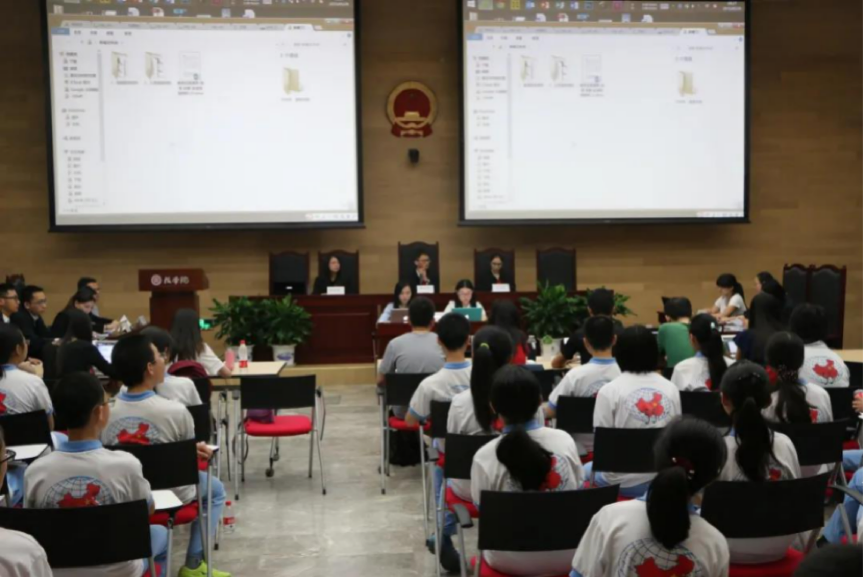
After studying, noticing that the maximum speed of the electric motorcycle was designed to be 50 km / h, students of “law clinic” decided to start with the identification of electric bicycle. Taking this as a breakthrough and combined the scratch caused by the electric motorcycle in the accident with the facts provided by the plaintiff, it was proved that the speed of the vehicle at the time of collision far exceeded the legal limit, which meant that the driver of the electric motorcycle had violated the relevant legal rules, and the college student should not be responsible for the accident.
After the breakthrough in the speed setting and scratch of electric motorcycle, the students of Peking University Law Clinic strongly refuted the Traffic Accident Liability Certificate in court with professional and keen reaction, and finally protected the interests of the student.
“Law clinic” has been providing excellent legal services for teachers and students of Peking University. In addition to “winning the lawsuit”, there is also “protection”. Over the years, the clinical teachers of law school have passed down the idea of cultivating talents in the service society through law clinic courses. At present, Yang Xiaolei, the teacher of PKULS, is still insisting on offering legal clinic courses and guiding students to participate in legal aid.
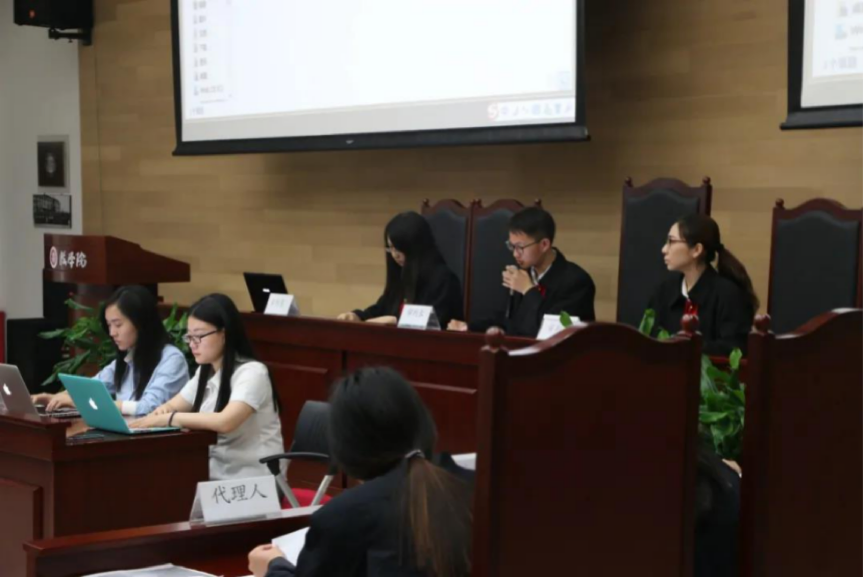
The past and present of “legal diagnosis”
In 1999, A. P. Yang came to PKULS to study. At that time, China’s legal service, especially the legal aid, was just emerging. After three years of master’s degree study, A. P. Yang and his classmates decided to spend some of their time “doing something”. At that time, the law school students spontaneously rebuilt the original Peking University “Help Association” into “Legal Aid Association”, and carried out public welfare legal service activities with the help and support of the school and college.
Subsequently, with the advocacy and support of Wu Zhipan and Gong Wendong, the law clinic course was officially established in 2000. “The passion of these voluntary students was an important support for the college to start this course. Later, I went to the Ministry of justice to work on legal aid. Returning to the college in 2004, I began to participate in this course as a teacher.”
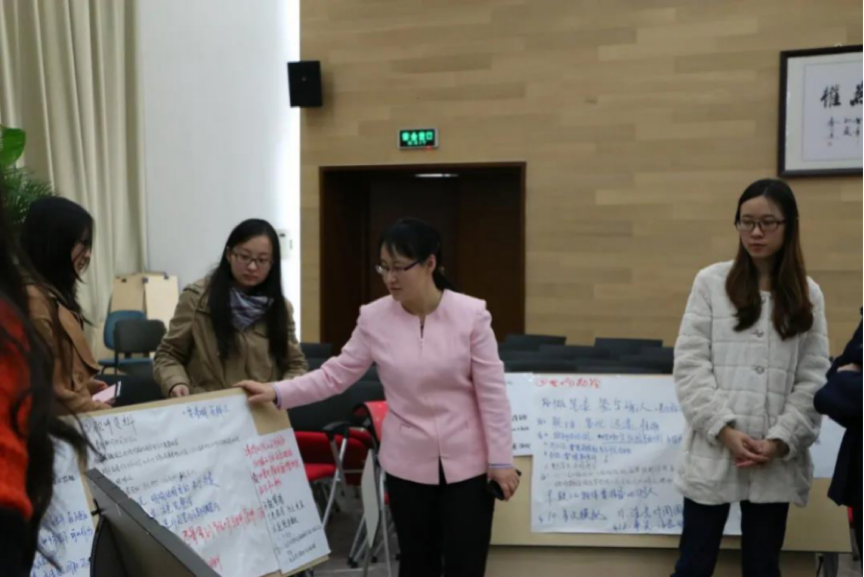
The tradition of “law clinic” originated from abroad. “In some foreign countries, this course is also a common course in law school. During my visit to Yale, Harvard, Columbia University, University of Oslo and other law schools, I feel that many students are willing to actively participate in law clinical courses. Why are students willing to do this? Because this is a way of learning law.” A. P. Yang supposes that from the perspective of knowledge learning and education, law is, to a large extent, a career oriented discipline with the ultimate goal of solving practical problems, which means that experience and skills are needed. Any thinking problem of ultimate concern should be based on professional experience and social problems. “From ancient times to the present, the two traditional professions, doctors and lawyers have very similar working concepts and professional methods. Doctors solve the problem of physiological order of human body, and lawyers solve the problem of social order. The knowledge system of these two orders are composed of rules. Doctors use and enrich their knowledge by constantly seeing patients, so do lawyers. If the knowledge they have learned is of no practical significance, they will not be able to solve real problems.”
In A. P. Yang’s view, the history of the birth of the “law clinic” and the needs of China’s reality all illustrate the necessity of practice for training legal talents.
Practice in learning and increase ability in practice
At present, more than 60 students participate in the “law clinic” course of Peking University each semester. There are three forms in the classroom: the first is to directly help “file a lawsuit” and be responsible for litigation and dispute resolution, representing about 5-10 cases in a semester, much are consultations; the second is to provide legal services for small and micro enterprises to solve problems as legal framework of enterprises, contracts, option plans and other legal documents, and legal practice of enterprise transactions; the last one is to participate in the legislation of legislative bodies. As a practical course, A. P. Yang uses “three kinds of contents and three space” to summarize its differences and uniqueness from traditional courses.
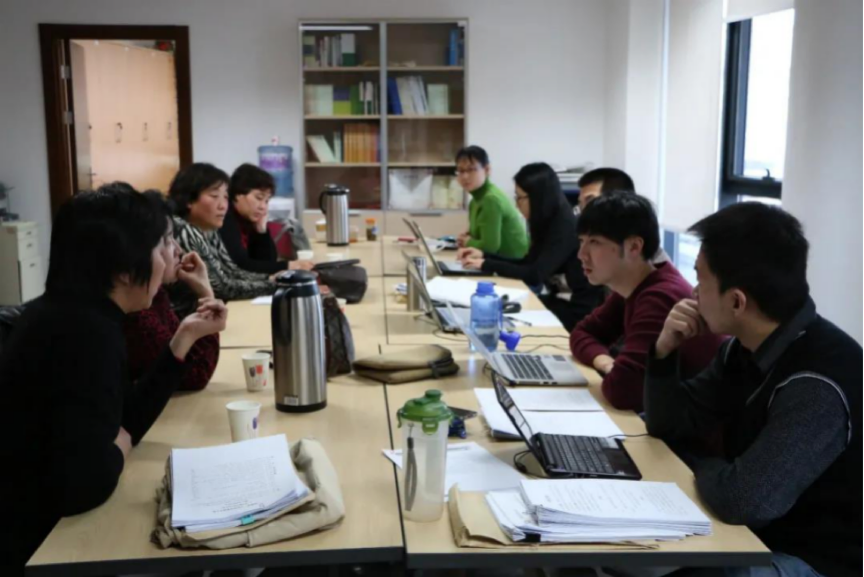
Three kinds of space can also be described as three kinds of working scenes. The first type of classroom activity, similar to that of a large court room, is fixed tables and chairs. The second kind of space is the actual space for practice and real cases. For example, there is a consulting room in B101, (Leo) Koguan Building, where clients (parties) come to consult their real cases. “From 2000 to nowadays, many people come here with their own questions for consultation. Our teachers take their students to answer these people’s questions. Some problems that can’t be solved by simple answers may need to be represented, appeared in court, help them to file a lawsuit, etc.” therefore, this space also includes the judicial workplace for dispute resolution such as the court. And the third kind of space is the group discussion space scene in which the teacher guides the group students to operate the practical cases.
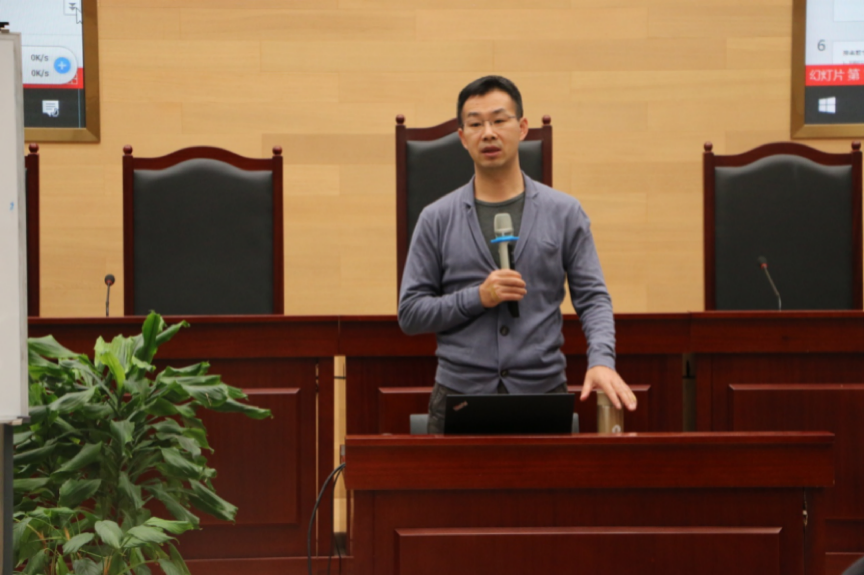
A. P. Yang stresses that the three scenes are functionally related. Compared with the knowledge taught in the traditional classroom, the knowledge in the “law clinic” space is professional. The knowledge here is fresh. It has professional roles and positions, not general and abstract knowledge. When the same court comes into contact with different customer businesses, the knowledge structure is different, and it needs to be “processed” in the face of this kind of targeted needs, so training should be carried out in this respect. At the same time, we also need to make some instruction plans. Twenty people are divided into four or five groups. They need to put forward plans at different stages. As a whole, division of labor and brainstorming are needed. Therefore, this is also a space for issuing planning instructions.”
After the plan instruction is issued, the next step is to strictly and flexibly implement these plans in the second and third space. Different from the traditional curriculum and practical activities, one of the characteristics of the “law clinic” is that after carrying out the practice, we should continue to bring our own experience back to the classroom, that is, the first space to polish and revise. Thus, the three spaces are interrelated and complement each other.
In this sense, students’ learning of knowledge is completed in a flipped, transformative and creative way. Because of this, “law clinic” has become a practical course with its own characteristics in the practical curriculum system of Peking University.
Serving the society helps cultivate competent legal talents
Law clinic course is one of the most popular courses in law school. There are a large number of students pre-selected every year, and only a few students can be chosen. After submitting the application, the 2018 master student Li got the opportunity to take the class. She felt that her greatest achievement was to improve her writing ability. “I haven’t write a document in person before because on one hand, I didn’t think it was necessary, on the other hand, I thought there was a template which I can refer to when necessary. But after class, I found that there are still many practical details that are very important. I began to understand many practical knowledge problems that should be paid attention to in legal document writing.”
The reason why it is strict is that this course is not “exercise” but “actual combat”, which requires students to have a high level of professional ability
For the mistakes that may occur in practice, teachers have set up two mechanisms. One is the guarantee mechanism. Every substantive decision must be guaranteed by the teacher to ensure that no mistake will be made. The other is the error correction mechanism. In case of any mistakes, the teachers will correct the errors and resolve the risks through effective ways.
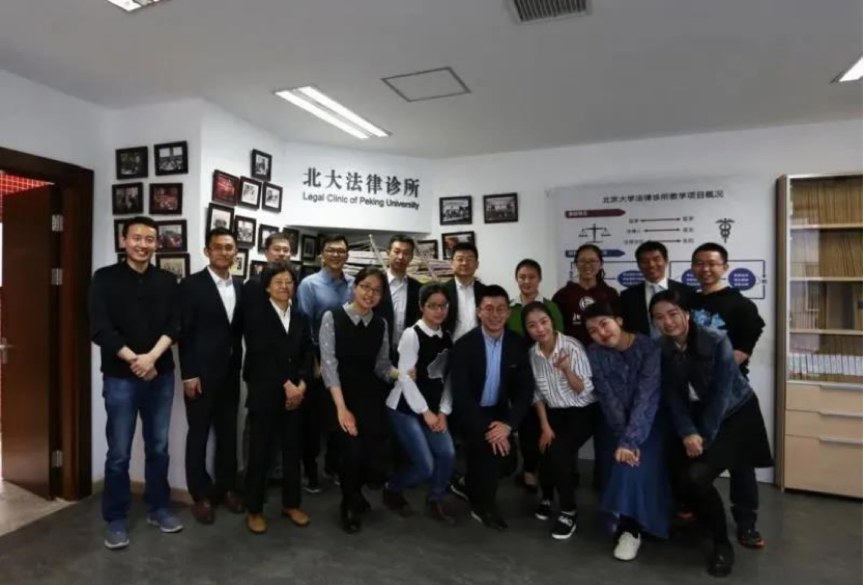
The law clinic has two important functions, one is to train talents, the other is to serve the society. The two functions are like the wings of a bird, so that the law people can have more humanistic care and gain the ability to improve and shape the value ideal in serving the society.
Over the past 20 years, the law clinic of Peking University has represented more than 400 cases in court, and the amount of legal dispute consultation in a year has reached 2300. With the stronger awareness of the rule of law in recent years, the amount of consultation is still increasing.
Peking University Law Clinic not only influences on-site consultation from surrounding communities and even Beijing, but also receives calls and letters from all over the country. This “small clinic” solves all kinds of conflicts and troubles for the grassroots people every day.
“Although there are more than 400000 lawyers in China, compared with the society with a population of 1.4 billion, the number of lawyers and legal service resources are not enough. For the reason, ordinary people are not fully aware of the most of the business lawyers engage in.” In A. P. Yang’s view, law clinic is not low-end services, but diversified services received by different groups of society. For the cases of grassroots people, lawyers working in “CBD” may neither have the time nor direct and effective experience, while legal clinic and legal aid can do “grounded” cases, which is an independent social division of labor and also a very necessary legal service.
Translated by: Lin Yufang
Edited by: Xu Mengyao



